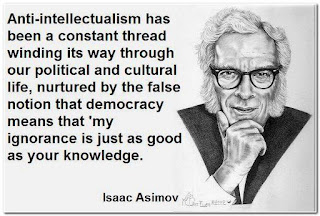Yes, the question’s not about grammar is it? It’s about metalanguage, so the explanation is necessarily at the stratum of register. And it’s not just a question about the theory, and its uses in analyses, applications, publishing and teaching, but about the community of users that we’re privileged to belong to. It’s about belonging and authority... who has the authority to interpret, extend or enhance the theory and its applications, whose analyses should be celebrated by the community, who’s inside. The simple answer is all of us. We all belong to the community, and we all draw our repertoires from its reservoir of appliable theory. We’re all guided by each other. The answers I’ve given are the best I can do, so thanks for asking the questions.“Aunty,” Jem spoke up, “Atticus says you can choose your friends but you sho’ can’t choose your family, an’ they’re still kin to you no matter whether you acknowledge ’em or not, and it makes you look right silly when you don’t.”
Blogger Comments:
[1] To be clear, Rose had been asked about the explanatory advantage of one grammatical analysis over another. This he could not answer.
[2] To be clear, for Rose, theorising is about belonging and authority. From The Culture Of 'Faith' In The SFL Community at What Lies Beneath:
Its intellectual challenges and contrary methodology make SFL Theory and its argumentation comparatively difficult to understand. This creates a culture in the SFL community where the theory is less understood than taken on trust, like religious faith.In a faith community, a doctrine is held as a revelation to be believed, rather than a theory to be in/validated by reasoned argumentation. In such a community, experts are providers or interpreters of revelations, rather than experts in reasoned argumentation, and in matters of interpretation, it is such individuals that are criterial, rather than reasoned argumentation. With individuals as criterial in doctrine interpretation, communities form around those individuals.
[3] To be clear, for Rose, every member of the community has authority in matters of theory, interpretation and analysis. From The Promotion Of Anti-Intellectualism In The SFL Community at What Lies Beneath:
One consequence of not realising that Systemic Functional Linguistic Theory is a scientific theory is the belief that work in the theory does not have to be consistent with the theory. The extreme version of this is the belief that all theoretical opinions are valid, and this view is sometimes defended as open-minded fairness.However, just as work in other scientific theories — such as Quantum Theory or the General Theory of Relativity — has to be consistent with a valid theory to be valid, so too does work in SFL Theory.Isaac Asimov has explained this form of anti-intellectualism as a misapplication of the notion of 'democracy':

